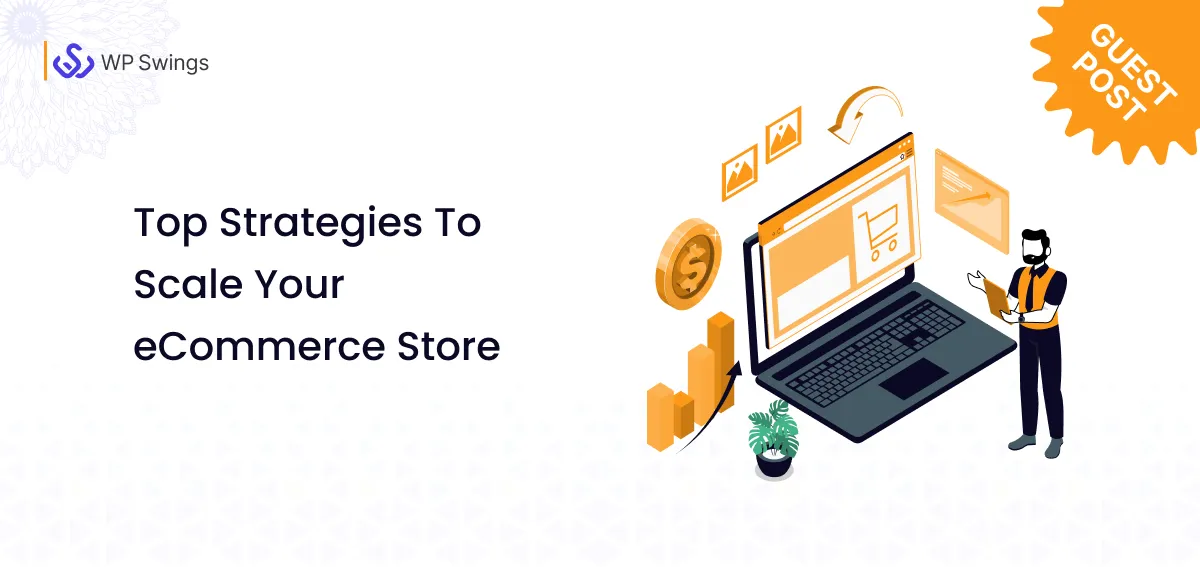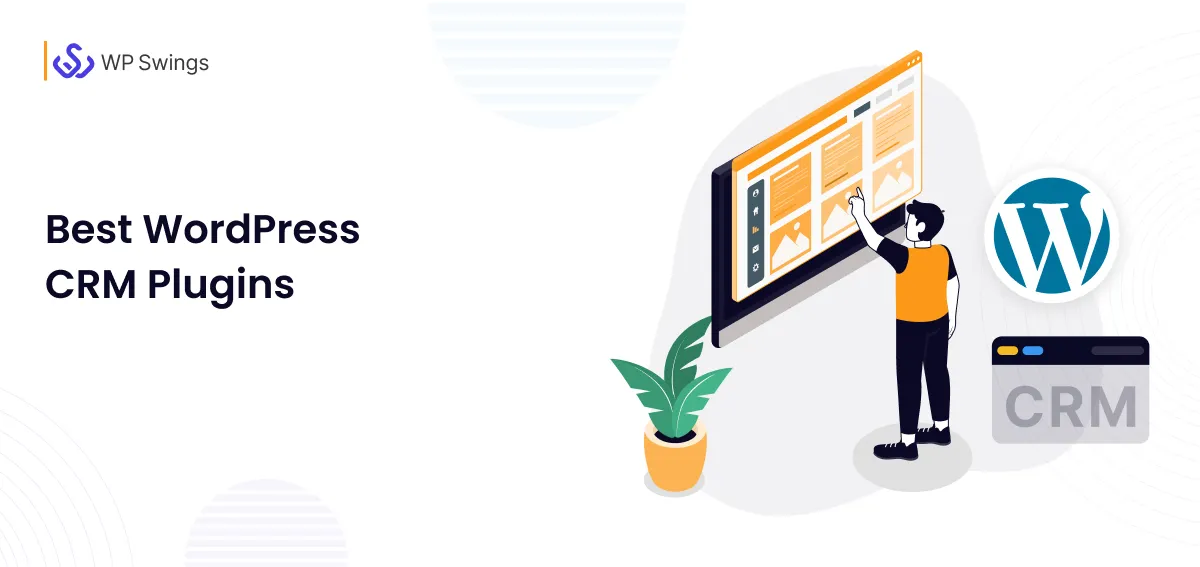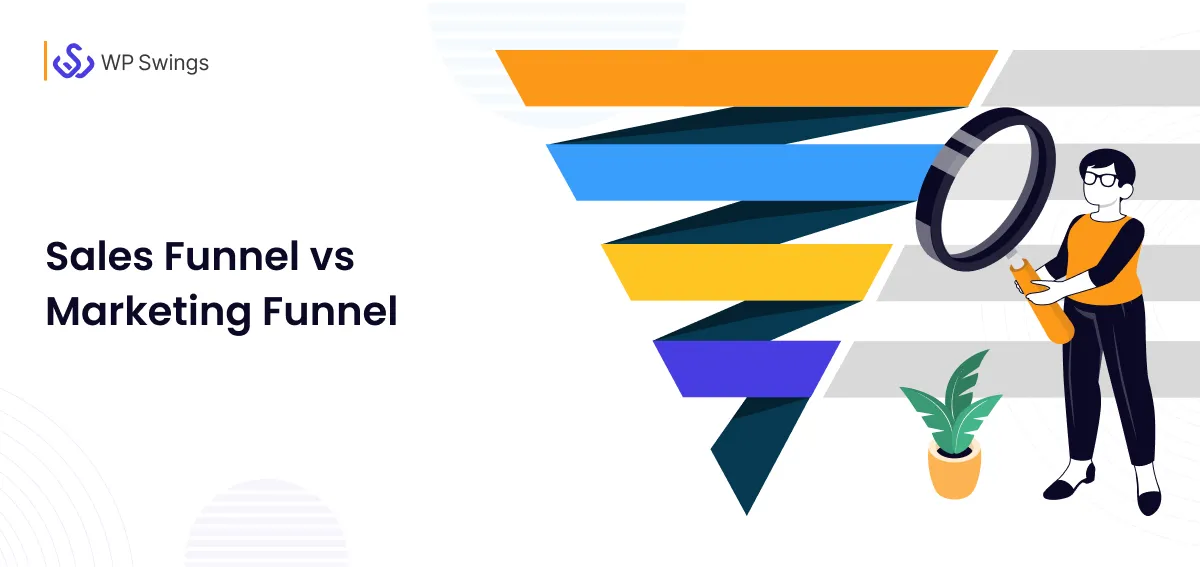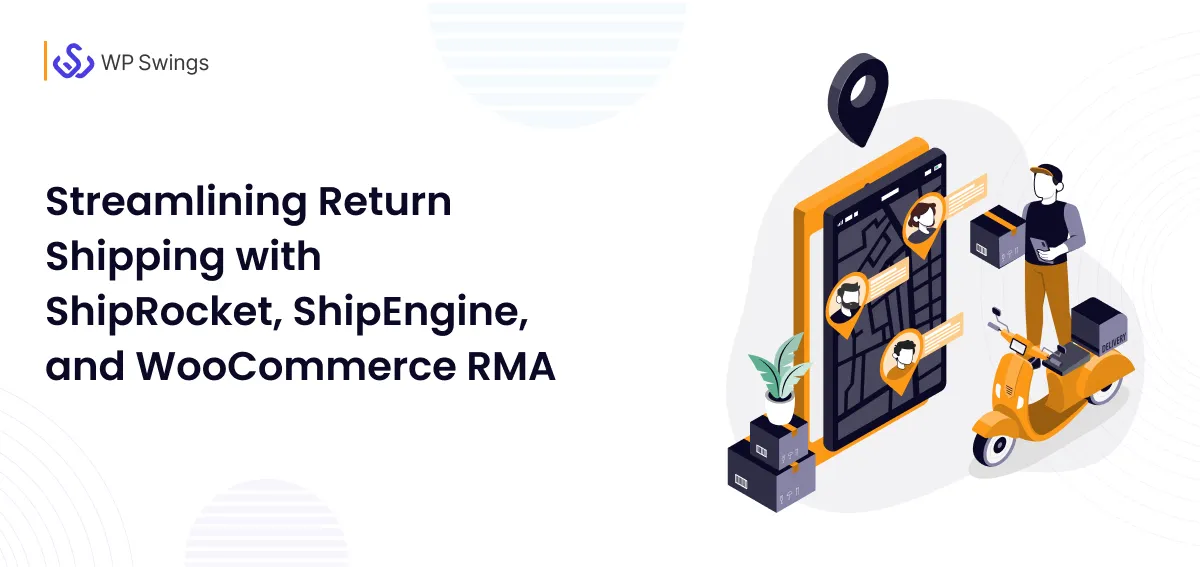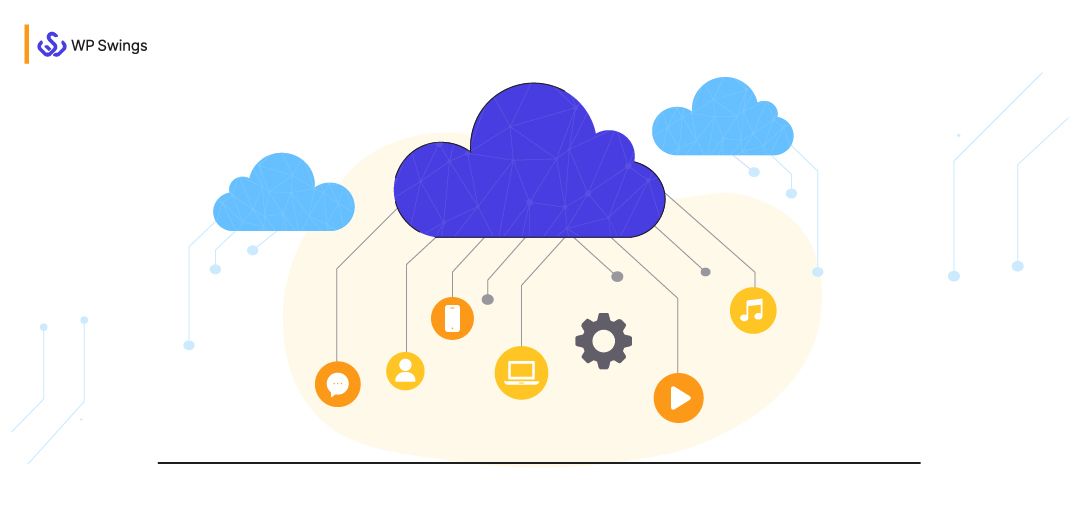
Nowadays, Cloud Computing has become one of the most demanding technologies.
Businesses which are utilizing cloud for a variety of purposes are highly adopting it. Therefore for test cases, cloud native applications, embed intelligence, and software development. Also, data storage backup and recovery, data analytics, and web applications use Cloud Computing.
Cloud computing has made it much easier to deliver computing services. Therefore, with the help of Cloud Computing, businesses can expand to new geographic locations within a few minutes. They don’t even need to buy hardware and software. They need not indulge in managing the infrastructure, set up and run data centers.
However, the cloud computing services run on secure data centers. These services are using modern and efficient hardware.
However, the cloud computing services provides you exposure to a wide range of technologies. It makes you capable of building what you dream. Therefore, they accelerate your business working style and speed by using your resources only when you really need them. You can easily use cloud computing services for your business’s Analytics, Machine Learning, IoT, computation, and much more.
Cloud Computing has much more potential than that. Therefore, before proceeding to the topic for the article directly, let me first introduce you people about the specifics of Cloud Computing.
What Is Cloud Computing?
However, we all know that Cloud computing is basically the delivery of computing services in various formal architecture. In other words, cloud computing referred to as the platform offering the paradigm or the architectural framework for the computing services. Yes, better to say– a structural protocol for operating over cloud and accessing the services in a manner. Moreover, these computing services include- servers, networking, databases, software, intelligence, and analytics over the internet. One notable example of cloud-based analytics platforms is dbt Cloud, which enables data teams to transform and manage data workflows more efficiently within modern cloud data infrastructures.

Source: OSTECHNIX
However, cloud computing helps businesses to scale up and provides data security and provides unlimited storage capacity. Moreover, it also helps in gaining excellent accessibility, disaster discovery, automatic software, and much more.
Therefore, cloud technology provides you an edge over your competitors.
Checkout the Comprehensive Guide of Website Navigation
Azure
Azure is a public cloud computing platform. It allows you manage and access cloud services and resources provided by Microsoft. It contains more than 200 products and cloud services. Use them for offering best solutions to your customers. However, in order to access these services and resources, you need to have two things. Firstly, the active internet connection. Second, you must have the ability to connect to the Azure portal.

Source: ScienceSoft
With the help of Microsoft Azure, you can build, run and manage applications across multiple clouds. It provides solutions such as FaaS, SaaS, IaaS, and PaaS. Storage, networking, analytics, and virtual computing uses these cloud services.
Want to Know About Best Mobile Marketing Strategies?
Types of Cloud Computing Services- FaaS, IaaS, SaaS, PaaS
There are basically four types of cloud computing services:
- FaaS known as Function as a Service
- IaaS known as Infrastructure as a service
- SaaS known as Software as a service
- PaaS known as Platform as a service
However, these services differ in the control, management, and flexibility. Moreover, they are termed as cloud computing stacks sometimes as they are built on top of one another.
Let us have a precise look at them:
FaaS (Function as a Service)
Serverless computing is a cloud-computing model. It takes away server management from the developers and low-level infrastructure decisions.
However, FaaS allows customers to develop, run, and manage application functionalities. Therefore, there is no need to build and maintain the infrastructure. This infrastructure is linked with developing and launching apps. FaaS allows developers to write and update a piece of code on the fly.
Instances of FaaS include- Amazon’s AWS Lambda, Google Cloud Functions, IBM Cloud Functions, Open FaaS (open source), Microsoft Azure Functions (open source).
FaaS is a new cloud model which was introduced and made available for the world by hook.io in late 2014. The FaaS model builds microservices.
According to DATADOG, at least one in five organizations is utilizing FaaS in each cloud.
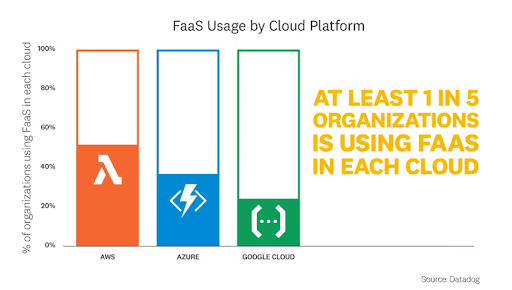
The cloud service provider handles operating system, virtual machine, physical hardware, and web server software management. The solutions provided by FaaS are available on major public clouds. They can be provisioned on-premise.
FaaS- Boon for Developers
However, FaaS enables software developers to develop applications easily. Developer can deploy an individual function. Also, they can perform a certain action without maintaining a server. Therefore, they need not to consider server operations as they are hosted externally.
The code which is developed in FaaS is highly fault tolerant and scalable. Also with FaaS, users are billed according to the functionality used. FaaS doesn’t consume IaaS resources until an event occurs. This ultimately reduces pay-per use fees.
High availability is built into the FaaS. There are two cases for it-
- If your cloud provider has an outage
- If you can modify the service. Such that you can break it and send it to the production before testing.
In this first case, you can mitigate the issues using a multi-cloud solution. In the second case, you will still have to roll back pretty quickly.
A function is basically a microservice which can perform one action in response to an event. With FaaS, the cloud service provider spins up a server when the function is triggered. Moreover, whenever the function is executed, server is shut down thereby.
IaaS (Infrastructure as a Service)
IaaS provides on-demand networking resources, computation, and storage. It acts as an existing IT resource. With which many IT departments and developers are familiar.
IaaS provides a high level of control over IT resources. It helps in deduction of data centers maintenance. And provides real time insights.
IaaS is a platform of building new technologies. Therefore, the user pays for computing services on IaaS. It provides networking, security and operating systems. Also, it provides servers, database, deploying development tools, and much more.
Therefore, it can be said that- it manages the entire infrastructure for you which includes servers, virtualization, network, and data storage.
It enables users to utilize the computing power or virtual machines. Without hardware investment or server management. The cloud service provider manages and maintains the wide variety of networks and servers. These are distributed among different data centers. The hardware resources are pulled from these networks and servers.
SaaS (Software as a Service)
It is a type of cloud computing service which provides application services for CRM, Marketing and Analytics.
Users can access SaaS apps through web browsers. The users need not to install the application or service on its computer. They can simply access it through the internet. Hence, no need to purchase hardware and maintain the software.
Users can directly interact with SaaS applications. For Instance- Netflix, JIRA, Dropbox, Salesforce, or Gmail. They can purchase SaaS services through pay-per-model or subscription.
The user needs to do bug fixing, software update and maintenance. CSP offers SaaS applications over the internet. And manages the cloud infrastructure.
SaaS applications are also known as hosted software, on-demand software, or Web-based software.
SaaS acts as a significant tool for applications which require a lot of mobile access or web. Such as mobile sales management software.
PaaS (Platform as a Service)
PaaS offers a framework to developers which can be used for building custom applications online. It enables you to deliver cloud enabled enterprise applications, sophisticated cloud apps, etc. Therefore, you need not be anxious about software maintenance, and other undifferentiated heavy lifting.
PaaS provides development tools, software stack, and infrastructure to software developers. So that they can efficiently run, manage, and develop applications.
Cloud service provider manages both application software platform and hardware.
PaaS creates efficient web applications. PaaS cloud computing service is highly scalable. However, it creates an efficient business environment where multiple developers can work on a single project.
FaaS (Function as a Service) v/s Serverless
FaaS creates functions that complement existing applications. These applications reside as separate services outside the core application. On the other hand, serverless is not limited to creating functions. It can be used to reduce infrastructure management responsibilities.
Moreover, serverless is more emphasized on the service category. Such as database, messaging, storage, etc. However, FaaS is more emphasized on the event-driven computing paradigm. Therefore, containers and application codes run in response to events.
FaaS (Function as a Service) Uses
Suitable for Multiple Processes
FaaS is a highly efficient tool for high volume parallel workloads. With the help of it, you can easily perform data aggregation, data processing, encoding, and format conversion. Also, you can easily create backend systems.
Android App Development
Android app development with FaaS is highly beneficial. Because, when an app connects to the cloud for specific functions. Then, only users pay. This is a cost-effective method. For instance, batch processing. Therefore, the cost is much lower than usage with traditional approaches. This approach is even more effective when paired with Best Android app development services that streamline cloud integration and enhance scalability.
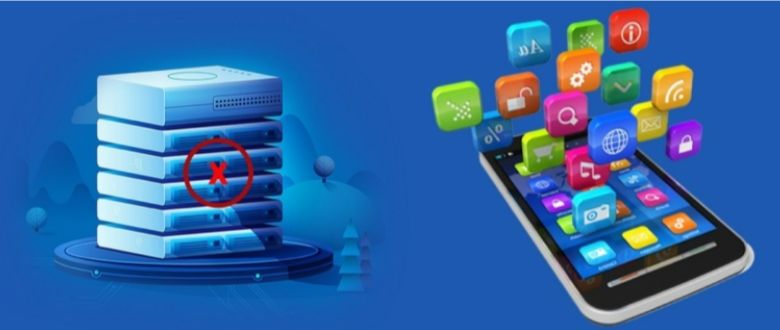
Source: Webuters
Forecast Stock Market With IBM Cloud Functions
FaaS has helped IBM engineers to use IBM Cloud Functions for Monte Carlo simulations for the estimation of future outcomes of (estimate) stock prices.
Monte Carlo Simulations
These are the mathematical models which have been around for more than a century. These are used to predict the future outcomes of certain hard-to-predict events.
This method uses random sampling on the input data. Estimation of future data outcome for the model is performed by it. The more the sampling and sampling range accuracy, the better will be the estimation.
Predictive Analysis Using IBM Cloud Functions
IBM Cloud functions act as a serverless FaaS. It executes code in response to events. It was used to complete Monte Carlo simulation. The time taken for it was about 90 seconds with 1000 concurrent innovations. That is compared to 247 minutes with 100% CPU utilization. With running the same flow over a laptop with 4 CPU cores.
Pros of FaaS (Function as a Service)
Faster Development
Developers don’t need to manage servers, configure and deploy. So that they can invest their time in writing application codes. And they can develop applications faster.
However, FaaS also provides an option to upload one function or entire application at a time. Developers can easily write the backend code for independent functions.
Easy to Scale
Developers need not to manage the scalability. FaaS solutions are highly scalable in nature. There is no need for upfront considerations about workloads. FaaS applications scale automatically with the usage or the number of users.
Cost Efficiency
With FaaS, customers pay for what they access. They need not to pay in advance for a specific amount of bandwidth. Also, they will not need to pay for over provisioning cloud resources.
Multiple Programming Language Support
Implementation does not require knowledge of additional programming languages. FaaS solutions are possible in all common programming languages.
Decreased Latency
With FaaS, vendors can run applications closer to end users. Therefore, there is no need for requests to travel long distances to an origin server.
Iterative Development
Function as a Service supports iterative development. This makes applications run faster. Developers can modify them easily.
Start an Online Store Without Inventory
Cons of FaaS (Function as a Service)
Complex Testing
Transferring the FaaS code into a local testing environment is difficult. Live testing of an application becomes a tedious task. It may require more resources to complete.
Execution Delay
Delay in function execution can occur sometimes. This can reach up to 3 seconds which can affect some applications. Furthermore, leaving FaaS is challenging.
Conclusion
FaaS is very helpful for developers. You will not have to manage the server infrastructure. Use it for a variety of applications. For instance, data processing, online applications, chatbots, etc.
FaaS enables the developers to bring efficient solutions for development workflow. Developers only need to write compatible code. And point it out to a serverless endpoint. Managed infrastructure provided by FaaS has several advantages. In terms of security, tolerance, and other maintenance tasks. Developers used to manage these in the past. Therefore, FaaS may be a technology that is highly useful to your company.
If you require more light on this topic or want to give your suggestion, please do comment below.
Happy Reading !!!


